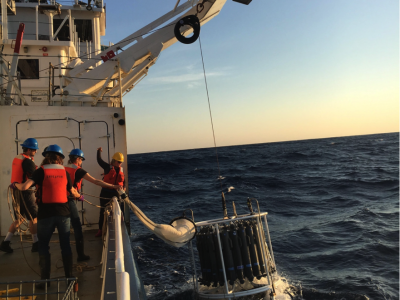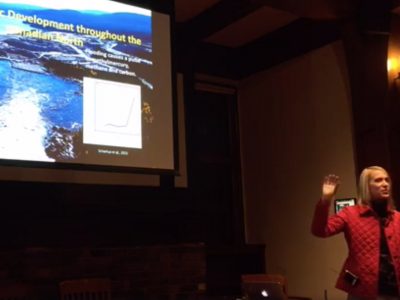Measuring mercury levels in the ocean: A scientist at sea on the Research Vessel Endeavor
By Colin Thackray, Nereus Fellow at Harvard University
The oceans are very expansive. Their enormous size and distance from where people stay long term presents a challenge for scientists monitoring the oceans. Unlike many atmospheric measurements for meteorology which we can make just outside of cities, often at airports, to get good measurements for ocean science, a journey on the sea is often required. Around the world, there are many ships designed or outfitted specifically for bringing scientists to the ocean – so called Research Vessels (RVs).







